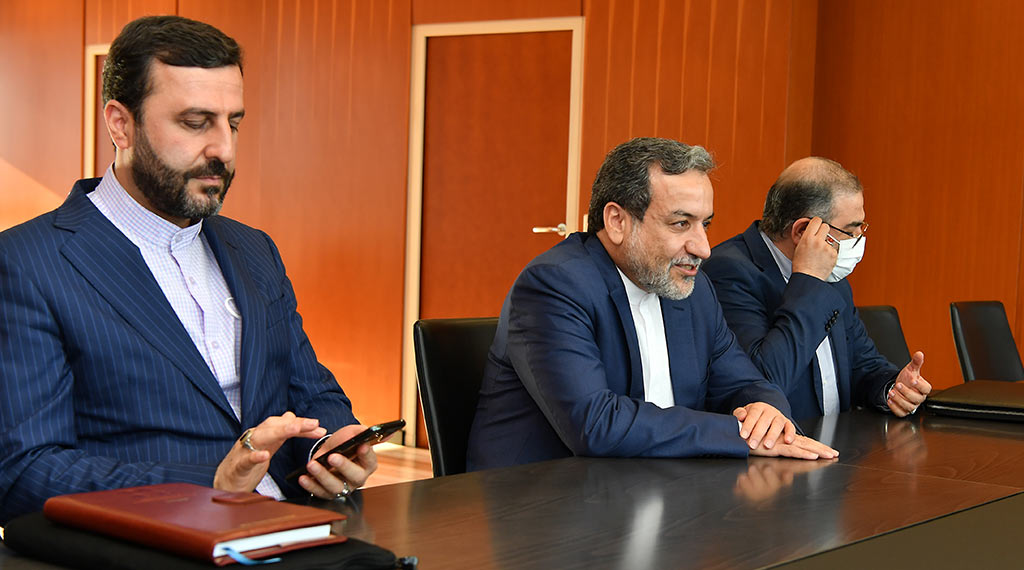
As the ceasefire continues to hold between the state of Israel and the Iran-backed Hamas and Islamic Jihad terrorist groups, the US administration is intensifying its efforts in Vienna, where negotiations with an Iranian delegation are taking place in a bid to allow America to re-enter the infamous nuclear deal.
Washington has chosen to ignore the fact that the missiles falling on its closest ally in the Middle East were either bought or made by none other than the Islamic Republic.
Seemingly driven by a desire to reverse the policies of the Trump administration at any price, President Joe Biden and his team are willing to overlook the potential disastrous consequences of this decision.
But 2021 is not 2015. Back then, an unmarked plane carrying $400 million of cash in euros, Swiss francs and other currencies on wooden pallets was sent to Iran by the Obama administration — in which Biden served as vice president — to coincide with the implementation of the Joint Comprehensive Plan of Action (JCPOA). It was the first installment of a $1.7 billion settlement that empowered the Iranian regime to spread its influence in the region and oppress its own people without being held accountable for its ruthless actions.
How much is Biden willing to pay this time? What are the terms of the new deal? And who is getting the bigger bargain?
If the two countries manage to reach a final deal, Tehran and its allies will be celebrating for the next three years, if not seven. The sanctions that have been gradually weakening the regime’s grip on its people will be lifted and more money will be funneled to terrorist groups in Gaza, Iraq, Lebanon, Syria and Yemen, posing a grave threat to the interests of Washington’s allies not only in the region, but worldwide too.
The Biden-Harris administration’s foreign policy is crumbling in its first year, dragging the country back to where it was during the Obama era.
Statements made by Iranian officials indicate that the Tehran government is dictating its conditions to Washington. President Hassan Rouhani has publicly stated that his country has the upper hand in the negotiations. “The talks about the JCPOA (are) over and now we are talking about how to allow the United States to return to the deal,” he said.
Meanwhile, it seems that discussing Iran’s ballistic missile program, human rights breaches and its support for terrorism is off the table, according to Iranian government spokesman Ali Rabiyee. “No talks between Iran and the US outside the framework of the nuclear deal — and outside the goal of full revival of the nuclear deal and the return of all countries to their undertakings based on the agreement — are relevant,” he said, urging Washington to expedite the process of reviving the nuclear deal to prevent any further complications or misunderstandings.
Click HERE to read more.
Meeting with Seyed Abbas Araghchi (01911422) by IAEA Imagebank is licensed under CC BY 2.0
- Mamdani’s Mayoral Bid Reflects Rising Alliance Between America’s Democratic Socialists and Radical Political Islam - August 18, 2025
- Jordan arrests a wake-up call to Muslim Brotherhood threat - April 21, 2025
- Giving Muslim Extremists a Pass Is Reflected in Canada’s New Guide to ‘Islamophobia’ - March 27, 2025
